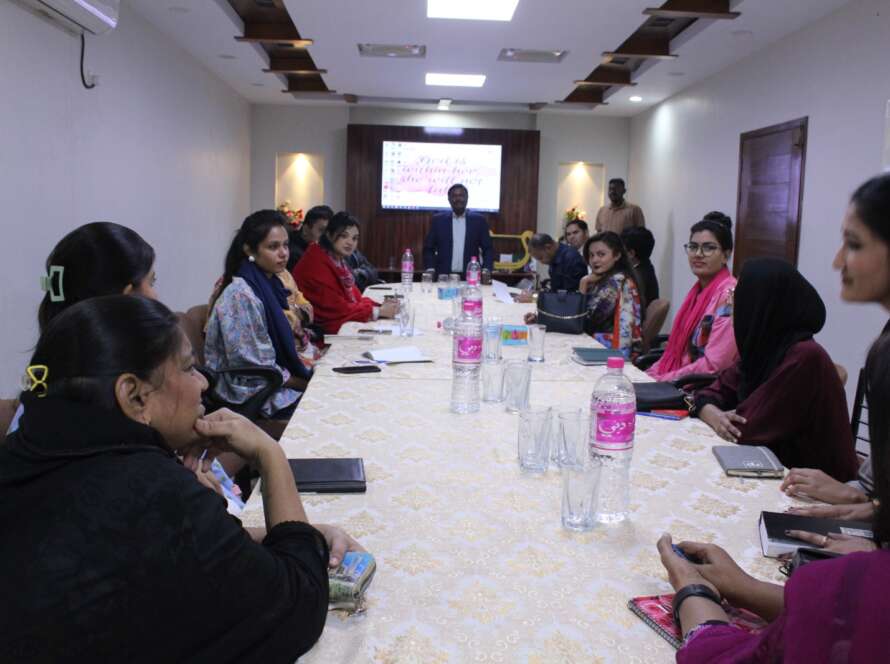The Universal Imperative of FoRB
Freedom of Religion or Belief (FoRB) is the bedrock of a just society. Not merely a legal principle, but the oxygen of human dignity. Enshrined in Article 18 of the Universal Declaration of Human Rights (1948) and fortified by the International Covenant on Civil and Political Rights (ICCPR), FoRB guarantees every person’s right to adopt, change, or peacefully manifest their faith, whether alone or in community. Today, as global polarization intensifies, this right has become a pragmatic necessity. Societies that uphold FoRB experience 34% less violent conflict, proving its role as a social stabilizer. When Pakistan endorsed the UDHR in 1948, it affirmed this principle, one now tested by the complexities of the 21st century.
Pakistan’s Journey: Constitutional Vision Meets Ground Reality
A Foundation of Protection
Pakistan’s Constitution of 1973 serves as a cornerstone for safeguarding fundamental rights, particularly in the realm of Freedom of Religion and Belief (FoRB).
- Article 20 guarantees freedom to “profess, practice, and propagate” religion.
- Article 22 shields students from compulsory religious instruction that conflicts with their faith.
- Articles 25–26 prohibit religious discrimination in public spaces.
These constitutional provisions resonate deeply with the vision of Quaid-e-Azam Muhammad Ali Jinnah, who famously stated,
“You are free to go to your temples, you are free to go to your mosques or to any other place of worship in this State of Pakistan. You may belong to any religion or caste or creed – that has nothing to do with the business of the State.”
This foundational framework illustrates Pakistan’s aspiration to uphold religious freedom and protect the rights of its diverse population.
Navigating FoRB in Pakistan
Implementing Freedom of Religion or Belief presents a complex challenge that balances individual rights with social stability, particularly in light of Article 20’s limitations related to law, public order, and morality. Recent judicial advancements, notably the Supreme Court’s 2018 acquittal of Salamat Mansha Masih, highlight the issues surrounding the misuse of blasphemy laws, indicating a potential shift towards justice and accountability. Progress is supported by collaboration between provincial bodies like the Sindh Human Rights Commission and civil society, addressing anti-conversion legislation and hate speech. The OECD also acknowledges the value of this partnership model.
Within this context, Pakistan boasts a rich religious diversity, with 96.3% of the population identifying as Muslim (including Sunni, Shia, and Sufi), 2.1% as Hindus, and 1.3% as Christians, alongside communities of Ahmadis, Sikhs, and others. This pluralism is reflected in the country’s cultural heritage, from the Sufi shrines of Sindh to the Hindu festivals in Punjab, showcasing centuries of shared cultural experiences that have fostered interfaith relationships. However, maintaining this harmony requires ongoing commitment and vigilance, as emphasized by OECD reports, which stress the necessity of transforming constitutional promises into tangible protections for all citizens.
Turning Rights into Reality
The National Commission for Justice and Peace (NCJP), established in 1985 by the Pakistan Catholic Bishops’ Conference, has emerged as a key advocate and protector of FoRB in Pakistan. Its work blends education, advocacy, and direct protection, creating a bridge between constitutional ideals and lived realities.
1. Education through Training of Trainers (ToT)
NCJP’s recent Training of Trainers program in Punjab equips local leaders with advanced FoRB knowledge and practical skills. These trainers become multipliers of change, each reaching over 40 community members with structured sessions.
To support them, NCJP developed two outreach tools:
- A custom-designed FoRB awareness flyer, simplified for grassroots engagement.
- A comprehensive training manual serves as the backbone for all sessions.
Trainers are instructed to use these resources both in formal workshops and informal community interactions, ensuring wider reach. Before engaging in field activities, they undergo rigorous preparation to internalize the content of the manual.
Post-training sessions held in 15 districts:Gujranwala, Lahore, Nankana Sahib, Narowal, Sialkot, Hafizabad, Sheikhupura, Faisalabad, Jhang, Toba Tek Singh, Sahiwal, Multan, Sargodha, Rawalpindi, and Kasur. Topics covered include:
- Understanding FoRB
- Legal protections and limitations under national and international law
- The role of Human Rights Defenders (HRDs)
- Risk management and fact-finding techniques
This ensures communities are not just aware of their rights but also equipped to defend them.
2. Evidence-Based Advocacy
The NCJP manual contains fact-finding frameworks enabling trainers to document FoRB violations systematically. This grassroots evidence shapes NCJP’s policy advocacy, reinforcing submissions to provincial commissions and UN human rights bodies.
3. Protection and Rapid Response
Trainers are prepared to act as first responders in FoRB-related crises. Using Module VI of the training manual focused on security, they connect victims with NCJP’s legal aid, psychosocial counseling, and emergency support services.
4. Campaigns for Social Change
Beyond protection, NCJP invests in changing mindsets. Public awareness drives interfaith dialogues to dismantle hate narratives and promote a culture of respect and coexistence.
The Path Forward: Unity in Diversity
NCJP’s district-level work marks the first step in a long-term strategy, building local early-warning systems, fostering interfaith dialogue platforms, and training a network of human rights defenders to ensure lasting impact. The vision is simple yet powerful: a Pakistan where every citizen, regardless of faith, can count on both community solidarity and institutional safeguards for their religious freedom.
FoRB is not a privilege; it is a national necessity. Without it, trust erodes, tensions rise, and unity suffers. Pakistan’s Constitution, cultural mosaic, and the unwavering efforts of organisations like NCJP prove that this right can be both protected and strengthened. Through training leaders, creating outreach tools, engaging in evidence-based advocacy, and responding to crises, NCJP shows that real change starts in communities and extends to the highest policy levels.
Protecting FoRB is not about appeasing minorities; it is about securing Pakistan’s future. When a Hindu girl studies alongside her Muslim classmate, when a Christian prays without fear, and when an Ahmadi’s dignity is upheld, that is not just coexistence, it is Pakistan’s strength. As Martin Luther King Jr. said, “Injustice anywhere is a threat to justice everywhere.”
FoRB is our shared responsibility. With persistent commitment from constitutional protections to grassroots action, Pakistan can make freedom of belief not just a legal promise, but a lived reality for all.



